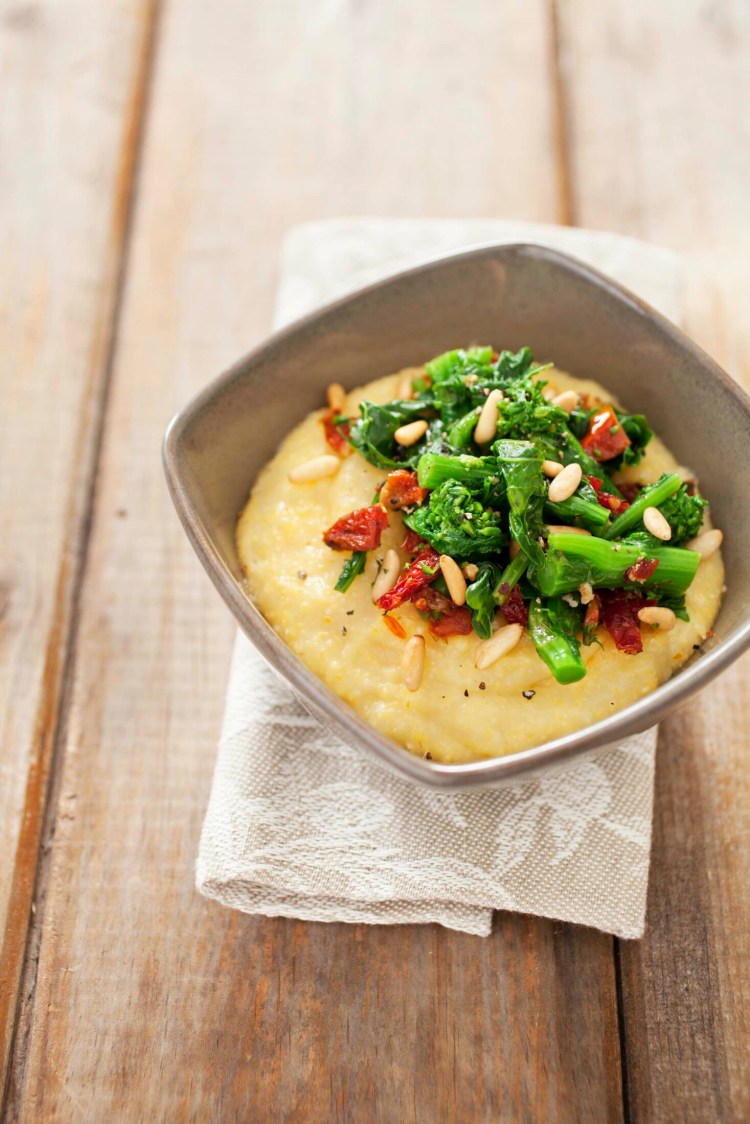If you are like me, you’d read the cookbook title “Vegetables Illustrated” and think “OK, so this is all about vegetarian food.”
Spoiler alert – this volume from America’s Test Kitchen is definitely not a cookbook for vegetarians or vegans.
This massive tome puts vegetables front-and-center. It’s just that some of the “vegetable” recipes are dishes like beef enchiladas, chicken mole and steak with chimichurri sauce. Sure, enchiladas have some beans in them and mole sauce uses chili peppers. I guess you could argue that the herbs in chimichurri are vegetables too, but it’s a bit of a stretch.

Courtesy of America’s Test Kitchen
Underneath the misleading title, however, lies a book jam-packed with information, recipes, tips, techniques and science. The volume is broken down by sections focused on a particular vegetable. Like other America’s Test Kitchen publications, the recipes are obsessively tested to determine the best way to prepare the dish. Each entry is compact and clear, with a short description called “why this recipe works” that explains why it is designed the way it is.
This is a volume that is easy to thumb through and find something to cook for tonight’s dinner, but also one that you can take your time with and drill down into technique and food science.
Photographs and drawings are peppered throughout, but for a book with “illustrated” in the title, not every recipe is paired with an image. Sometimes, unless the description of the dish is compelling enough, a reader might skip it in favor of one they can see. The density of the book, with hundreds of pages covered in small text, makes it easy to skip over a recipe that doesn’t stand out.
One preparation that caught my eye was polenta topped with broccoli rabe and pine nuts. I really like creamy, savory polenta but don’t often find recipes that feature it. Ditto for broccoli rabe, a great green I often pass by for less-expensive broccoli or kale. The dish came together easily and took less than an hour. The polenta was a little soupy, but firmed up on the plate. The greens were bright and crisp and the sundried tomatoes lent a sharp, almost citrusy element that balanced the buttery, cheesy polenta nicely.
The only note I would add for this recipe is to keep extra salt to a minimum. With Parmesan, sun-dried tomatoes, butter and broth, the recipe is kind of a sodium bomb. For people like me, that’s great, but another cook might want to dial back the extra salt it calls for.
Parmesan Polenta with Broccoli Rabe, Sun-dried Tomatoes and Pine Nuts
Serves 4
Total time: 1 hour
POLENTA
7 1/2 cups water
Salt and pepper
Pinch baking soda
1 1/2 cups course-ground cornmeal
4 ounces Parmesan cheese, grated (2 cups)
2 tablespoons unsalted butter
TOPPING:
3 tablespoons extra-virgin olive oil
1/2 cup oil-packed sun-dried tomatoes, chopped coarse
6 garlic cloves, minced
1/2 teaspoon red pepper flakes
Salt
1 pound broccoli rabe, trimmed and cut into 1 1/2-inch pieces
1/4 cup chicken or vegetable broth
1/4 cup grated Parmesan cheese, plus extra for serving
3 tablespoons pine nuts, toasted
For the polenta, bring the water to boil in a large saucepan. Stir in 1 1/2 teaspoons salt and baking soda. While whisking constantly, slowly pour cornmeal into water; bring to boil. Reduce heat to lowest setting and cover.
After 5 minutes, whisk polenta to smooth out any lumps that may have formed, about 15 seconds (make sure to scrape the side and bottom of pan). Cover and continue to cook, without stirring, until polenta grains are tender, but slightly al dente, about 25 minutes. (Polenta should be loose and barely hold its shape; it will continue to thicken as it cools.)
Meanwhile, cook oil, sun-dried tomatoes, garlic, pepper flakes, and 1/2 teaspoon salt in 12-inch nonstick skillet over medium-high heat until garlic is fragrant and slightly toasted, about 1 1/2 minutes. Add broccoli rabe and broth, cover, and cook until broccoli rabe turns bright green, about 2 minutes. Uncover and continue to cook, stirring frequently, until most of broth has evaporated and broccoli rabe is just tender, 2 to 3 minutes. Season with salt to taste.
Remove polenta from heat, stir in Parmesan and butter, and season with salt and pepper to taste. Let sit, covered, for 5 minutes. Spoon topping over individual portions of polenta and sprinkle with Parmesan and pine nuts. Serve, passing extra Parmesan separately.
Send questions/comments to the editors.




Comments are no longer available on this story